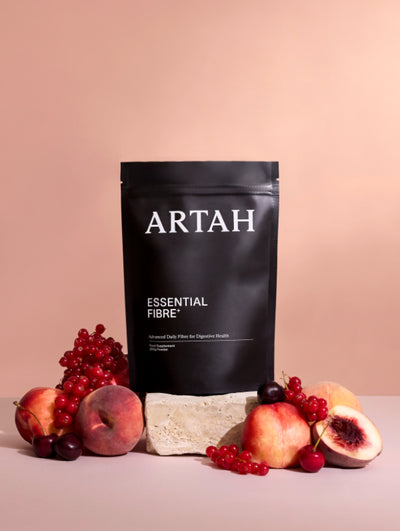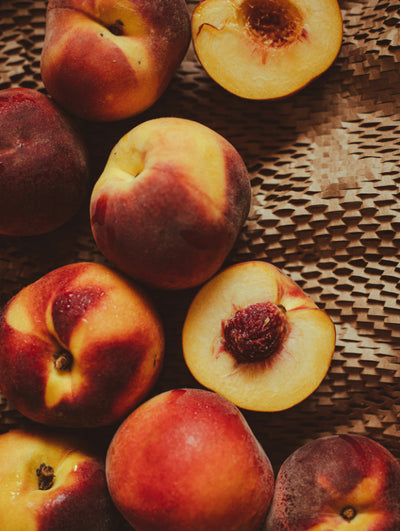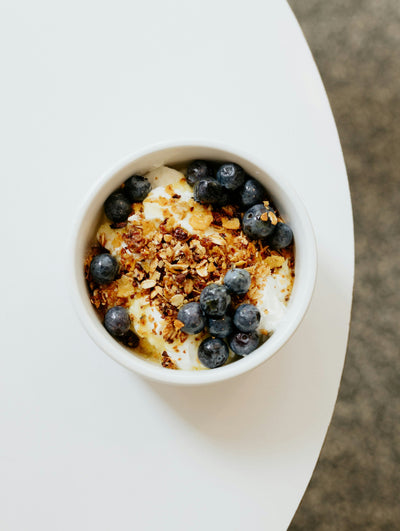Last week, a team of researchers published a study in the acclaimed journal ‘Science’ revealing that supplementation with the amino acid Taurine increased the life span of middle-aged mice by upwards of 10%. Improvement in overall lifespan wasn’t the only benefit, they also observed a reduction cellular senescence, telomerase deficiency, mitochondria dysfunction, DNA damage and inflammation. In laymen's terms; Taurine supplementation drastically reduced some of the hallmark signs of cellular ageing. So what is Taurine, and is it really crucial for good health?
What is Taurine?
Taurine is a semi-essential amino acid and is one of the most abundant amino acids in our heart, skeletal muscle, eyes, brain, and immune cells. It’s considered semi-essential because under ideal conditions, our bodies can produce adequate amounts of it to meet our cellular demands, except in times of illness and stress. Its synthesis can be impacted by other deficiencies; Taurine synthesis needs adequate levels of Vitamin B6, Methionine and Cysteine, which we are often lacking, especially on plant-based diets. Taurine production also declines as we age, which may be one of the reasons why topping up may have such a profound effect on cellular ageing.
Because Taurine is so abundant in the body, the list of benefits is far reaching. So, how does it work?
AGEING.
Whilst its role in energy, metabolism, and detoxification has been known for some time, the Science study highlighted and exciting potential use for Taurine in combating cellular ageing and promoting longevity. It does this through a variety of pathways, one of the most interesting is perhaps its role in preventing DNA damage and therefore, healthy ageing. DNA is our master genetic code and resides in the chromosomes within our cells. At the end of each chromosome is something called a telomere, which is a specific sequence of DNA that protects our genetic material from degradation and mutation. Think of it like a cap that protects our genes from damage. Our telomeres shorten with age; shorter telomeres are associated with an increased incidence of disease and markers of ageing, whereas longer telomeres are protective and help preserve cellular lifespan. Longevity practices are often aimed at telomere preservation, because the rate of shortening can be increased or decreased by lifestyle factors, including – no surprise – diet, exercise, stress, and supplements. In the Science study, Taurine was found to reduce DNA damage by preserving an enzyme called telomerase, which works to repair our telomeres. Taurine production declines as we age, which may account for another reason why topping up may have such a profound effect on cellular ageing.
METABOLISM.
It’s clear that Taurine is a key player in metabolic health, but the Science study wasn’t the first to reveal Taurine’s benefits. A 2016 meta-analysis showed that Taurine has protective effects against metabolic syndrome, also known as insulin resistance, and can reduce triglycerides, improve glucose regulation, and combat high blood pressure. Other studies have echoed these conclusions and shown that it has a positive impact on HbA1C, a marker of blood sugar control, fasting blood sugar levels, and HOMA-IR, a marker of insulin sensitivity. Because Taurine is involved in energy metabolism, it’s also frequently used for athletic performance and endurance.
DETOXIFICATION.
Our liver is the primary organ of detoxification, and it's responsible for everything from neutralising food, chemicals and environmental pollutants, to transporting and removing waste from our body. It’s the main part of our built-in detox system, and if it’s always under pressure from our lifestyle and environmental exposure to different chemicals and pollutants. Liver detoxification has two stages; the first stage is where toxins are broken down into their different counterparts. Sometimes they’re neutralised to less harmful substances, and sometimes they are metabolised into more reactive or damaging compounds. These are then passed on to Stage 2 of liver detoxification, which is referred to as conjugation. There are several conjugation pathways which take these intermediates and get them ready to be excreted as waste, either through our urine, bile, or stool. How does Taurine fit in? Taurine is an essential nutrient in the Phase 2 pathways of liver detoxification, so if we’re not getting enough through diet or our endogenous synthesis is impaired, Phase 2 reactions can be impaired, which over time can affect metabolism, adiposity, inflammation, oxidative stress and more.
EMOTIONAL WELLBEING.
Taurine is abundant in our brain and nervous system, and as such, is critical to their health. It’s structurally similar to GABA, one of our calming neurotransmitters, and as such, has similar actions when it comes to reducing stress, anxiety, and promoting sleep. Because of its antioxidant and anti-inflammatory properties, it also has neuroprotective effects.
HOW TO TAKE IT.
Since the article was published last week, tik-tok has been flooded with Taurine energy drinks and high dose pre-workout cocktails with over 6g of Taurine per serving; but buyer beware, more isn’t always better. High doses of Taurine can lead to unwanted side effects, including nausea, vomiting, headache and abdominal pain. More importantly – it’s completely unnecessary. Studies have shown that supplementing with 100mg-500mg per day delivers therapeutic benefits.
- Supplements: Try Deep Detox, which features Taurine alongside other proven longevity powerhouses like N-Acetyl Cysteine and Alpha-Lipoic Acid. It also boasts Methionine, one of the rate limiting amino acids in Taurine synthesis, so can also support your body’s natural production.
- Food sources: Fish, seafood and meat are the main sources of Taurine, with Seaweed being one of the only concentrated vegan sources. The foods with the highest levels are scallops, tuna, tilapia, octopus, turkey, chicken, seaweed, and beef.
- If you’re exclusively plant based and looking to up your dietary Taurine (without relying on daily maki rolls), try using seaweed sprinkled as a topper to salads, grain bowls, and soups. It’s also important to look for foods that contain the rate-limiting amino acids of Taurine production, Cysteine and Methionine, so look to include chickpeas, lentils, walnuts, spinach, hemp, sesame seeds/tahini, sunflower seeds and oats.
REFERENCES
- Chen W, Guo J, Zhang Y, Zhang J. The beneficial effects of taurine in preventing metabolic syndrome. Food Funct. 2016 Apr;7(4):1849-63.
- Singh P, Gollapalli K, Mangiola S, Schranner D, Yusuf MA, Chamoli M, Shi SL, Lopes Bastos B, Nair T, Riermeier A, Vayndorf EM, Wu JZ, Nilakhe A, Nguyen CQ, Muir M, Kiflezghi MG, Foulger A, Junker A, Devine J, Sharan K, Chinta SJ, Rajput S, Rane A, Baumert P, Schönfelder M, Iavarone F, di Lorenzo G, Kumari S, Gupta A, Sarkar R, Khyriem C, Chawla AS, Sharma A, Sarper N, Chattopadhyay N, Biswal BK, Settembre C, Nagarajan P, Targoff KL, Picard M, Gupta S, Velagapudi V, Papenfuss AT, Kaya A, Ferreira MG, Kennedy BK, Andersen JK, Lithgow GJ, Ali AM, Mukhopadhyay A, Palotie A, Kastenmüller G, Kaeberlein M, Wackerhage H, Pal B, Yadav VK. Taurine deficiency as a driver of aging. Science. 2023 Jun 9;380(6649):eabn9257.
- The effects of taurine supplementation on diabetes mellitus in humans: A systematic review and meta-analysis. Food Chemistry: Molecular Sciences, Volume 4, 2022,100106, ISSN 2666-5662.
- Qi Song, Junxia Guo, Yanzhen Zhang, Wen Chen. The beneficial effects of taurine in alleviating fatty liver disease. Journal of Functional Foods, Volume 77, 2021, 104351.
- Shammas MA. Telomeres, lifestyle, cancer, and aging. Curr Opin Clin Nutr Metab Care. 2011 Jan;14(1):28-34. doi: 10.1097/MCO.0b013e32834121b1. PMID: 21102320; PMCID: PMC3370421.
- Ibrahim MA, Eraqi MM, Alfaiz FA. Therapeutic role of taurine as antioxidant in reducing hypertension risks in rats. Heliyon. 2020 Jan 17;6(1):e03209. doi: 10.1016/j.heliyon.2020.e03209. PMID: 31989053; PMCID: PMC6970174.








































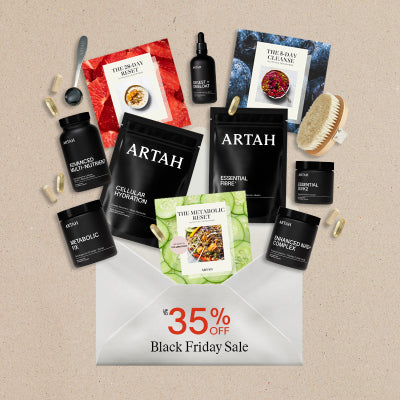
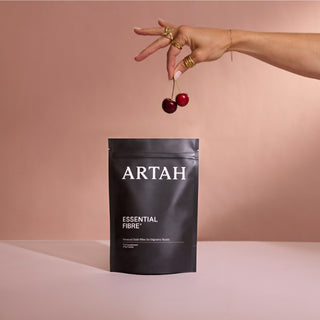

 SHOP NOW
SHOP NOW

